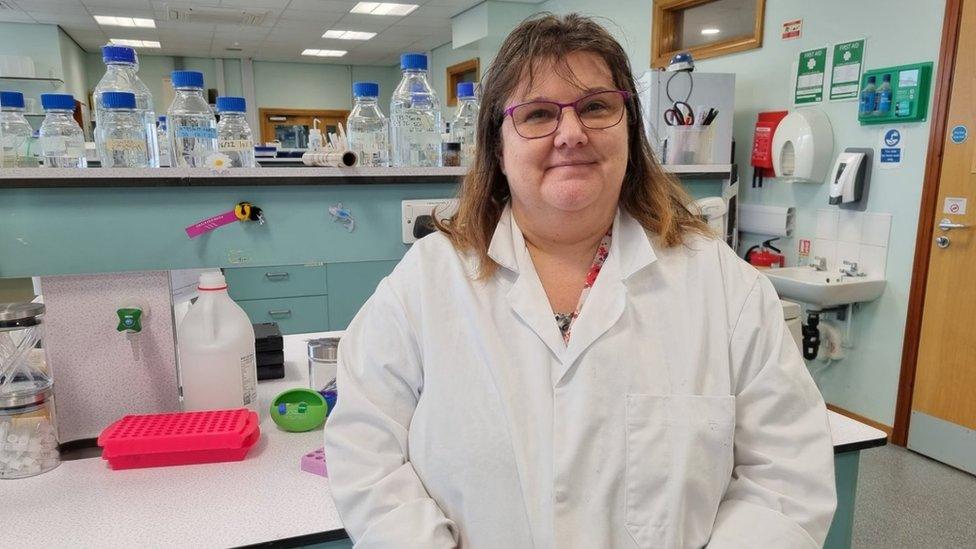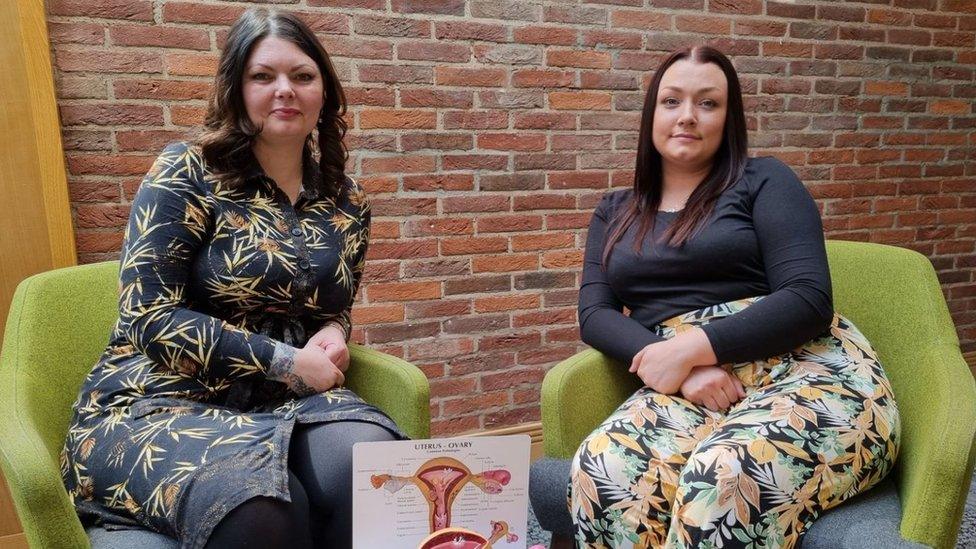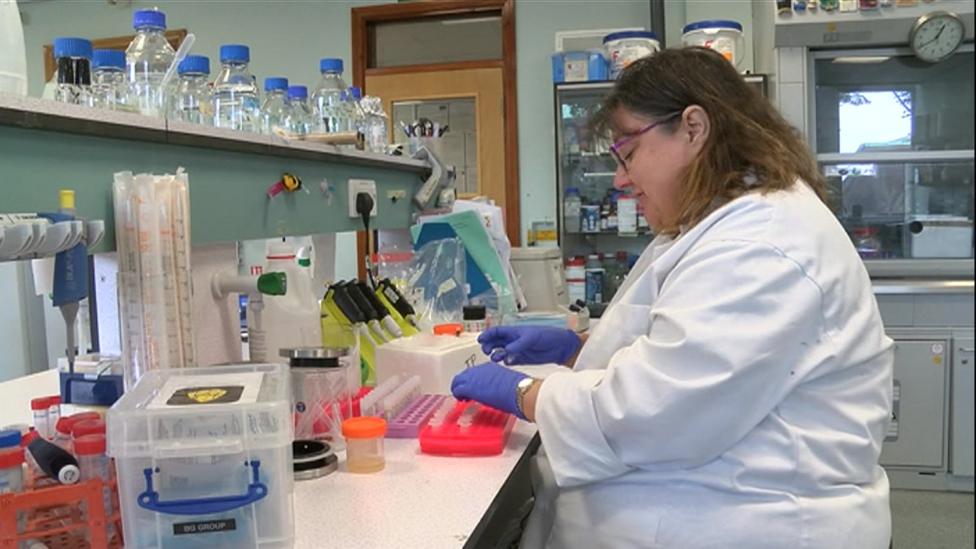Endometriosis research: University of Hull test could quicken diagnosis
- Published

Lead researcher Dr Barbara Guinn said the condition could be diagnosed with a simple urine test
A new test could cut the time it takes to diagnose a condition that causes chronic pain for thousands of women.
Endometriosis causes cells similar to the ones in the lining of the womb to develop elsewhere in the body.
On average, it takes eight years to get a diagnosis, but a test developed at the University of Hull could cut that to just eight days.
One patient taking part in the trial described the potential of the new test as "life-changing".
Becky Holmes, who waited more than 20 years to be told she definitely had the condition, said it would "stop the damage it does in the waiting times".
"For people like my daughter, who is also suffering, it would just change their lives completely," she said.
"It would give them a life, instead of suffering like we do."
Ms Holmes said the condition had had a "massive, massive impact on my life".
"I've lost so many jobs due to not being able to work with it," she said.
"It's impacted what I can do with my children; swimming, going on holidays. We can't because I never knew how bad I was going to be with bleeding."

Becky Holmes and Chanelle Urquhart, who both have endometriosis, are helping with the research at Castle Hill Hospital
Charity Endometriosis UK estimates that around 1.5m women live with the condition in Britain.
The cells grow elsewhere in the body, especially on the reproductive organs and bowel. They react to the menstrual cycle each month and also bleed.
However, there is no way for the blood to leave the body. This can cause inflammation, pain and the formation of scar tissue.
If untreated it can lead to organ damage and infertility.
Lead researcher Dr Barbara Guinn, who is a Reader in Biomedical Sciences at the University of Hull, said a quick urine test could help identify sufferers before serious damage is done.
The test could be carried out at GP surgeries and clinics, whereas at the moment women have to be referred to a specialist clinic and have an invasive surgical procedure called a laparoscopy to be diagnosed.
"We want women to be able to have this urine test and much more quickly go to the right treatment and the sooner we treat endometriosis, the less invasive it is," she said.
"The less damage it causes and that's better for patients, but also for the NHS.
"At the moment, endometriosis is believed to cost the UK economy £8.2bn a year, very close to the amount diabetes costs the UK economy.
"So it has a huge impact, but compared to a lot of other diseases, it's had a tiny amount of funding. By bringing in a non-invasive test, it's the first step in making a difference to women, treatment and outcomes."
Dr Guinn has been testing samples from women who know they have endometriosis and attend specialist clinics at Castle Hill Hospital in East Yorkshire.

The research team at Castle Hill Hospital are looking for more volunteers
Another participant, Chanelle Urquhart, waited 15 years to get a diagnosis. She said she has PTSD due to the amount of medical testing she had to undergo to diagnose the condition.
"The difference it would make would be incredible," she said.
"I could have gone into my GP surgery at the age of eight, or even older, and they did a urine test and said you have these proteins, it looks like you probably have endometriosis, that could have cut years off my diagnosis time.
"That would have been amazing. It wouldn't have had the chance to do the damage that it's done."
Both women have already donated samples to the research team, but Dr Guinn says more are needed to confirm her early findings.
She said the team really needed urine samples from healthy women, who have regular periods, and invited people who wanted to volunteer to get in touch.

Follow BBC East Yorkshire and Lincolnshire on Facebook, external, Twitter, external, and Instagram, external. Send your story ideas to yorkslincs.news@bbc.co.uk, external.